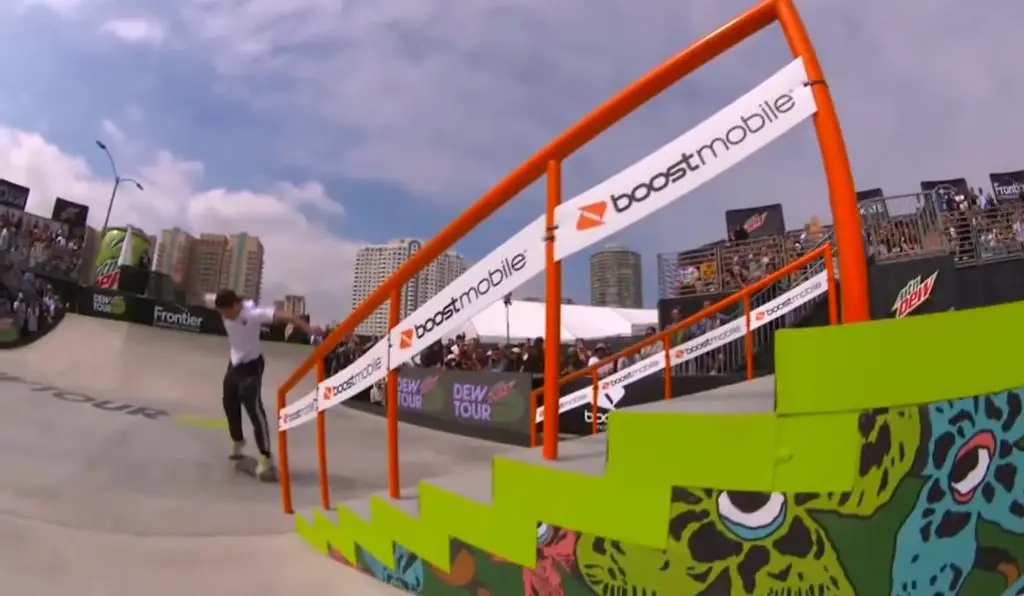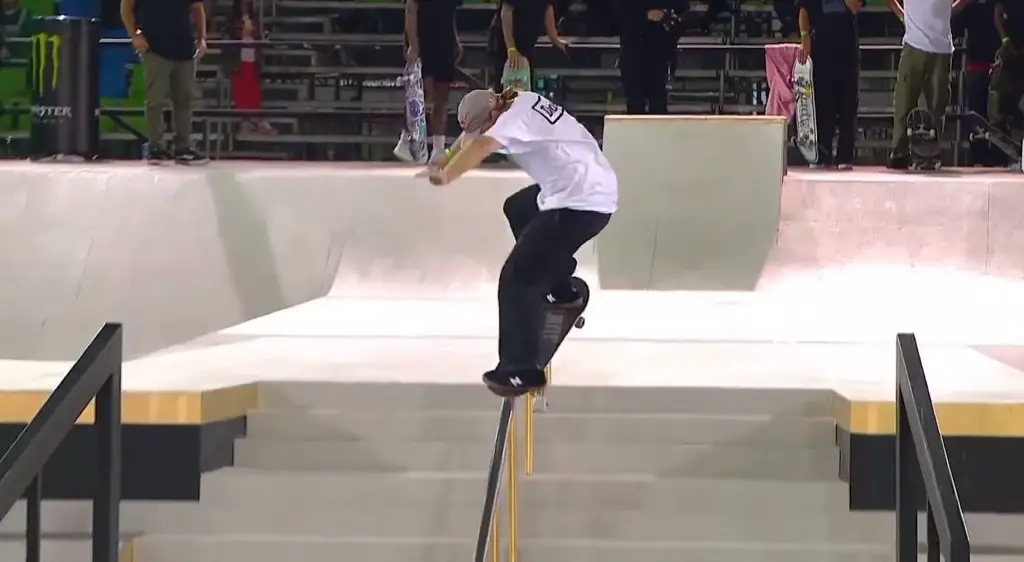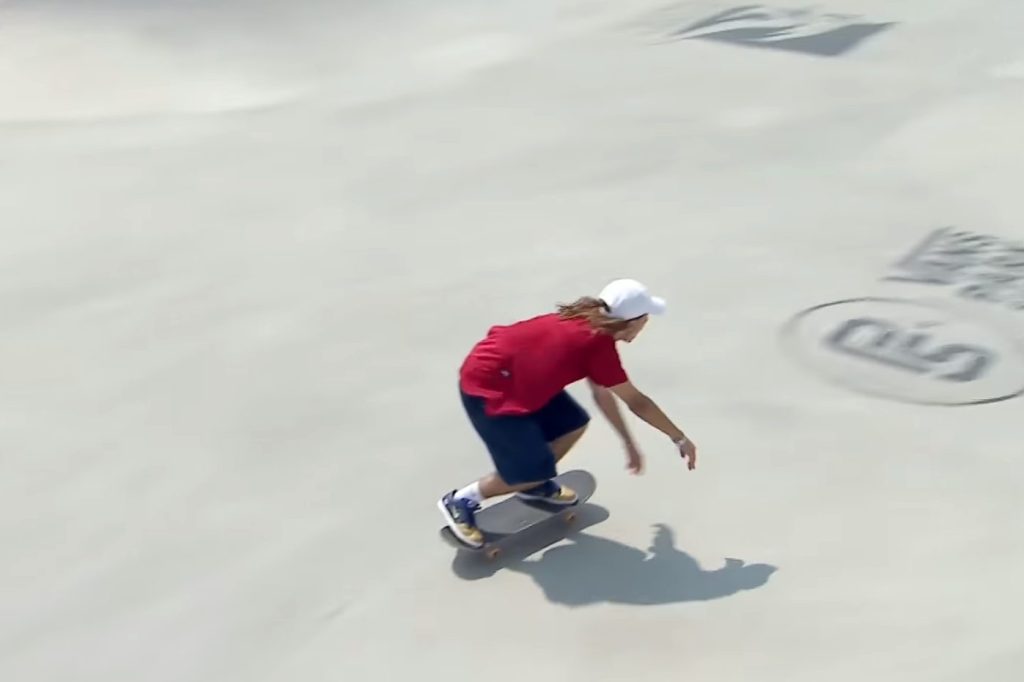The adventure of Skateboarding is known for its creativity, individualism, and DIY spirit. The riders often customize their skateboards and clothes to reflect their personal style.
Skateboarding was added as an Olympic sport for the first time in the 2020 Summer Olympics, scheduled in Tokyo, Japan.
Due to the COVID pandemic, the Games were postponed to 2021, and then the Olympics were held from July 23 to August 8, 2021.
Skateboarding made its Olympic debut during these games, with both men’s and women’s events in two perspectives.
In the section below, we will provide more authentic guidelines to provide a detailed overview of “how long skateboarding has been in the Olympics”.
When is the Skateboarding Olympics?
Skateboarding made its Olympics debut in 2021. In future, Skateboarding will continue to be a part of the Olympics, next Summer Olympics will hold in Paris, France, in 2024.

Skateboarding Olympics
Specific dates for the skateboarding event in the 2024 Tokyo Olympics have not been announced.
Rules and Regulations for Olympics Skateboarding
The rules of skateboarding in the Olympics depend on the specific discipline. There are two basic disciplines in Olympic Skateboarding. It will be held either in a park or on the street. Some of the guidelines for each discipline are Below here:
Park:
The skatepark consists of a bowl with Different heights and transitions.
Skaters are judged based on the difficulty, height, speed, and execution of their skills.
Each skater has three 45-second rounds to show their skills.
The top eight skaters with the highest scores then move to the final. Then 3 More rounds are held to determine the medal winners.
Street:
The street event consists of stairs, rails, and other obstacles you mostly see in urban areas.
Again Skaters are judged according to their skill levels.
Skaters need to make 2 rounds of 45 seconds and five single-trick attempts.

The top eight skaters then move on to the final, then skaters need to do 2 more rounds and five more single-trick attempts. After that, the winners are announced.
Skateboarding at Olympics
Some basic guidelines can be made more specific rules and regulations for each discipline, depending on the event and skaters.
Judging Criteria
The judging criteria for skateboarding events are designed to evaluate the difficulty and skill of each skater performing. Judges are looking for skaters with high skill, creativity, and originality in their tricks.
Here are the basic aspects that judges typically check. You have to consider the following when evaluating skateboarders’ performance in the Olympics:
Judges look for skaters who attempt and successfully land on difficult tricks, such as spins, flips, grabs, grinds, and combinations of tricks.

Judges evaluate the quality of the skater’s execution in each trick, looking for proper technique, control, and smoothness in their movements.
In the park discipline, judges pay attention to the height of skaters, aerial tricks and the speed while approaching obstacles.
Skaters are judged according to their ability to use the skatepark, incorporating a variety of obstacles and transitions into their tricks.
Judges look for skaters who perform a unique skateboarding style and bring new tricks to the sport.
The judging criteria may vary depending on the specific event and discipline. Judges mainly seek skaters who can perform difficult tricks with creativity and originality.
Players Competing for the Skateboarding Events
Skateboarding events in the Olympics are open for Professional skaters around the world. Each country’s governing body is responsible for selecting its team of skaters.
In the 2020 Olympics, 80 skateboarders (40 men and 40 womens) competed in both park and street events. The skaters were selected according to their performances in others events that were held in recent years.

The skaters in 2021 at the Tokyo Olympics came from different parts of the world with different ages and levels of experience. Some were seasoned professionals, while others were New Skaters.
Players Competing for the Skateboarding Olympics
The skaters who competed in the 2021 Tokyo Olympics are some of the best skateboarders, and they show an amazing display of their skill in both park and street events.
Significance and Inclusion of Olympics Skateboarding
Skateboarding as an Olympics event will significantly impact the Olympics. Recognition of Skateboarding in the Olympics is a great initiative. It gives skaters a chance to show their skills in Skateboarding.
Here is Some Significant Importance of this Act:
Skateboarding has been a part of sports culture for many recent years. Its appearance in the 2021 Tokyo Olympics brings this sport exposure to a wider audience.
This increased exposure will give more opportunities to skaters and gives them more support for this sport.
Skateboarding has been seen as a countercultural activity in mainstream sports. Its appearance in the Olympics shows that the sport is gaining recognition and legitimacy. It is taken seriously as a competitive activity.
The Olympics are one of the biggest events globally, and their acceptance of Skateboarding will lead to increased interest in this sport worldwide. This act will support Skateboarding and give skaters more opportunities to compete.
The Final Statement
The appearance of Skateboarding in the Olympics can help to bridge the gap between traditional and action sports. It has often been seen as a separate sport. This act will lead to more understanding and appreciation of the skater’s skills in action sports like Skateboarding.
We hope that the information explained above might prove to be helpful for you.
Hi, I am Mian. I am the Owner and Founder Of Skateboard First. I am such a huge fan of skateboarding, and I am here to enhance your experience in skateboarding.

